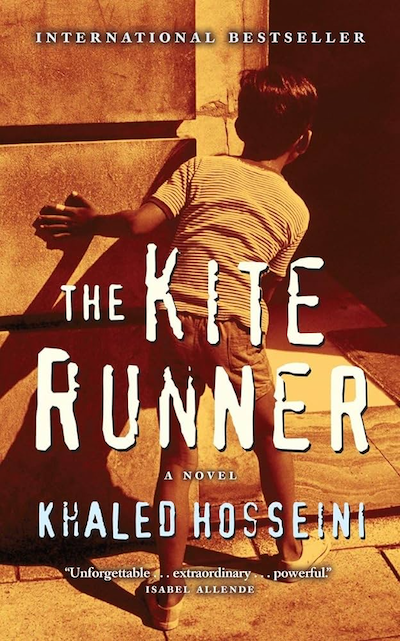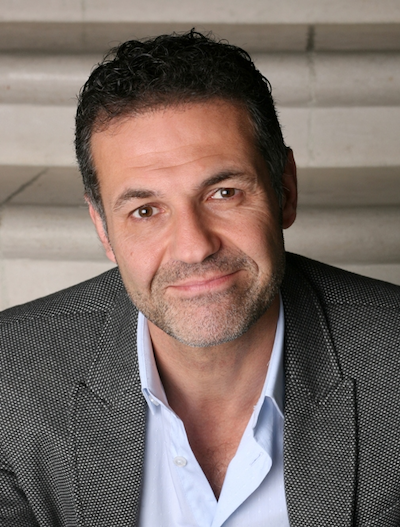The Kite Runner: A Review
Published April 16, 2024
I have always loved reading book reviews, especially the reviews where no one can decide whether a book is a page-turner or not. While reading community book reviews one night, I happened across the reviews of The Kite Runner, by Khaled Hosseini. I have never seen such argumentative reviews with so few people who simply felt indifferent about the book. There was a deep divide between the support and criticism of this book, and a surprising use of colorful language. In critique, a commenter stated, “This is the sort of book White America reads to feel worldly,” while a supporter wrote, “Honestly, this book was so moving and beautiful that I was crying.” This was the first time such uncertain reviews have inspired me to read a book out of eager curiosity rather than hesitant expectation. I wanted to form my own opinions outside of these wild, feather-ruffled reviews.
The book follows a young Afghan boy named Amir and his friend Hassan through their tumultuous childhoods in the 1970s. Realistically, Amir is not a moral child. He witnesses when Hassan gets assaulted physically, verbally, and sexually, yet says nothing about it. Then Amir decides his life would be simpler without Hassan and attempts to remove him from his life. Amir and Hassan part ways when Hassan leaves the city with his father, and Amir becomes a refugee in Pakistan, eventually finding himself in America. Years go by and Amir marries, becomes a novelist, and settles in America. After a time of peaceful living, Amir returns to Pakistan, to visit a dying friend, where he learns Hassan has died. Hassan has left behind a son, who Amir must find and save as an act of redemption for his betrayal of Hassan in their childhood. Without spoiling this book (because I deeply encourage you to read it), the ending is cuttingly bittersweet and painfully lays to rest the lost friendship of Amir and Hassan.

Despite the reviews I read, I tried to go into this book as unbiased as possible. Before reading, I had little to no knowledge of Afghanistan, other than its conflict under the rule of the Taliban. From a personal standpoint, I really enjoyed the book, and the way Hosseini guided me through understanding events I will never experience. There are little to no moments of whimsicality and gentleness, which speaks to the reality of the struggles Hosseini writes about and has experienced. Though it is heartbreaking and difficult to read at times, I find the way this information is delivered to be profoundly honest. My expectations were certainly different from the actual material. I had the misconception that the story would be happier in the end and would stop the pit that was forming in my stomach. But I found I like that the ending does not tie up every idea neatly, and does not make the reader feel held. Something within those endings makes the story seem more real. Would I recommend this book to a friend? Absolutely. Would I give a content warning beforehand? Absolutely.

To understand a book like The Kite Runner in the way it is intended, the information must be engaged with realistically. For me, it was hard to know how to engage with this book, because I thought there would be nothing in it that I could relate to. I was happily proven wrong, especially in the instances of Amir’s morality and decision-making. We all struggle with making the right choice, particularly when our environments aren’t nurturing us too. In Amir’s case, he struggled with choice because of threats encroaching on his home. It wasn’t due to his home itself, but due to those who wished to see Afghanistan fall. The way Amir’s choices played out helped me further understand regret, and how personal decisions can be heavily influenced by sociopolitical factors. Cultural engagement is necessary, though it is good to keep in mind that the information presented will not always be the kind you are familiar or comfortable with. It’s okay to not understand entire concepts of cultures unfamiliar to your own, but it is important to try to the best of your ability. The worlds beyond our own carry rich ideas, dialogues, and cultures that would remain unknown to us, should we not choose to seek them out.
I can understand why the reviews of The Kite Runner were so across the map. Receiving unfamiliar information can be shocking and can cause defensive reactions. I've found that information does not always have to be peacefully perceived to be helpful. In my own experience, I prefer to be given information that isn’t tied up with a neat bow. The Kite Runner is the perfect fit for that description. The captivating story combined with the honest characterizations allows for breathing room. The way the story was written helps the reader conceptualize the unknown and engage with human nature in a comfortingly uncomfortable way. I encourage you to pick up a copy of The Kite Runner, or at least, another book outside of your own perspective or comfort zone. Read something new, something different, to cultivate your understanding of others. Broadening our horizons will lead to intriguing new discoveries.


